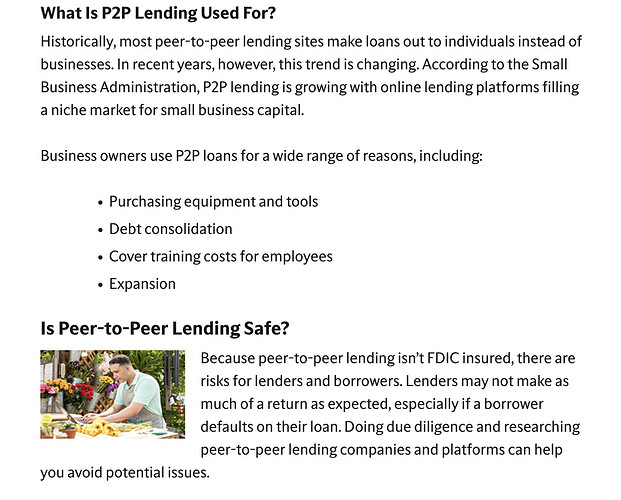I’ve been hearing a lot about P2P lending and the high returns are tempting. But I’m worried about the risks. Some platforms mention ‘insurance’ or ‘protection funds’. How exactly does P2P lending platform insurance work in India, and is my money actually protected if a borrower defaults?
Your money in P2P lending isn’t protected like it is in a bank FD. Nope. Some platforms talk about ‘protection funds’, but that isn’t real insurance. Your capital is always at risk. I learned this the hard way, thinking ‘protection’ meant I couldn’t lose my money. You’ve got to know what you’re getting into before you invest a single rupee.
credits : Peer-to-Peer Lending for Your Startup | The Hartford
The Reality of P2P Lending Platform ‘Insurance’
I saw this story on Reddit once. A guy was super angry because he lost money on a loan he thought was ‘secured’. He assumed the platform’s ‘Principal Protection Fund’ guaranteed his money back. But it was just a pot of money the platform set aside, not actual insurance. When too many people defaulted at once, the fund ran dry. That was a real eye-opener for me, this ‘insurance’ is just a small buffer, not a guarantee.
How a Default Unfolds with P2P Lending Protection
My friend Sarah invested ₹50,000 on a P2P site. One of her borrowers defaulted on ₹1,000. After the platform failed to recover the money, their ‘protection’ kicked in. But she didn’t get the full ₹1,000 back. They only gave her ₹750, which was 75% of her principal. She lost ₹250 plus interest. It showed her that this protection is only partial and comes with a lot of conditions.
Understanding the Fine Print of P2P Lending Insurance Coverage
I learned my lesson and started reading the fine print. One platform offered an ‘80% Capital Shield’ but another one had no fund at all, just a really aggressive recovery team. I read about a guy who went with the second option. He said that even with a few defaults, the platform’s team managed to get most of his money back eventually. It made me realize that a good recovery process can be better than a fancy ‘insurance’ name.
Key Takeaways: Is Your Money Protected?
So, is your money safe? The short answer is no, not really. This isn’t like the government-backed insurance you get for bank deposits. After doing this for a while, here’s my advice: think of these protection funds as a small cushion, not a safety net. The best way to protect your cash is to spread it across tons of different borrowers. Don’t let the word ‘insurance’ make you lazy. Always read the rules and only invest money you can afford to lose.
